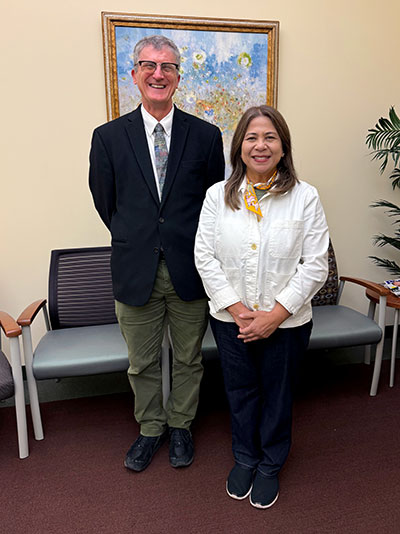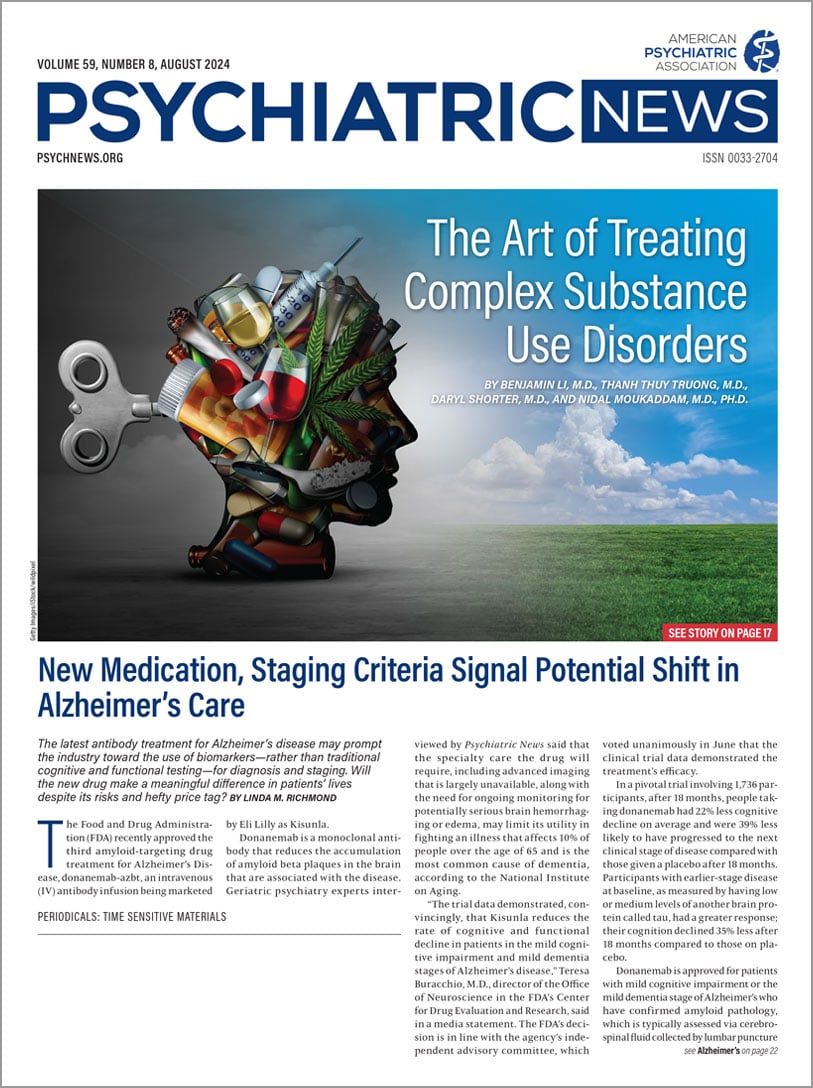The impact of gun violence on children should be a grave concern for all psychiatrists, even those who treat only adults, argued Geraldine Mayor, M.D., at APA’s Annual Meeting.
“If gun violence did not kill the child or take away his or her health, it gave a mental signal that the world is a dangerous place, that life is a battle,” said Mayor, a general adult psychiatrist practicing in Pennsylvania. “The perspective around gun control should broaden. It is not just about decreasing the number of deaths and injuries; it is also about changing the collective experience of a nation.”
Mayor stressed that the impact of gun violence has ripple effects that extend well beyond the immediate act of violence. As long as leaders fail to act to implement policies that prevent gun violence, she argued, “we continue to incubate generations who are fearful, hypervigilant, and mistrustful and who have the type of psyches that will likely resort to gun violence, and other types of violence, to navigate our world.”
During the session, Mayor explained some of the basic terminologies related to gun violence that often come up in debates about the issue. For example, she explained what an assault rifle is and how it can be more deadly and cause more widespread harm than an ordinary handgun. Assault weapon bans are often lauded by gun violence prevention advocates as a way to reduce mass shootings and the casualties created by such events.
In 2022, James Garbarino, Ph.D., published an
article in the
New England Journal of Medicine about the mental health effects of gun violence among children and adolescents in the United States. Mayor pointed to two concepts he described in that article: war-zone mentality and contamination of consciousness.
Garbarino described the war zone mentality as “hypersensitivity to threat and validation for preemptive assault.” Mayor explained that this mentality can be caused by chronic exposure to community violence, like that experienced by youth in urban neighborhoods or in war zones.
The “contamination of consciousness” is created by the images of mass shootings and mass murder events made available to the public through media coverage and social media postings. In his article, Garbarino described speaking with one actual and two would-be school shooters. He wrote that he was struck by how these boys were informed by scripts that the media provided of other school shootings, particularly the 1999 shooting at Columbine High School. “They studied Columbine as a kind of primer on what to do when you’re a troubled, angry, sad teenage boy in a country that gives you ready access to lethal weapons,” he wrote.
During the session, Mayor was joined by James Luebbert, M.D., director of the Division of Child and Adolescent Psychiatry at Thomas Jefferson University. Luebbert shared a case presentation of victims of gun violence in Philadelphia. In January of this year, the
Philadelphia Inquirer published a
special report titled “Forever Young” in which the publication featured the 24 youth who died of gun violence in the city in 2023. Luebbert described the demographic characteristics of those 24 children, 22 of the 24 were boys, and all the shootings occurred in sections of the city where most residents were Black and 40% lived in poverty.
He emphasized the need to provide early and effective mental health care to children in at-risk communities. He also highlighted the need for effective gun control legislation.
Mayor impressed upon the audience that this is an issue that should concern all psychiatrists. She urged her fellow psychiatrists to screen patients for exposure to gun violence and assess whether gun violence was prevalent in their communities growing up.
“Young individuals exposed to gun violence grow up to be adults with PTSD and depression,” she said. “They endure learning difficulties in school that make it harder for them to succeed in society as adults. It is important even for general adult psychiatrists like me to be aware of how gun violence impacts the mental formation of children and adolescents so we can treat our adult patients in a more informed way.” ■

